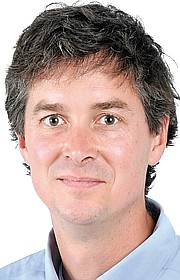TO GET INVOLVED
To help Terrance Westfield’s family pay for funeral expenses, visit GoFundMe.com and search “Mr. Terrance J. Westfield.”
Where is the way out?
Clay Mason, 25, did all the right things. A top graduate at The Howard High, then historic Morehouse College, he became a teacher and mentor to kids near and far: Orchard Knob Middle, Indonesia, Baylor School. He and local activist Marie Mott were planning city council campaigns. He was black, the best, the brightest.
"He did everything right," one man said.
"He was a gift," one woman said.
Yet two weeks ago, he was shot and killed, his way out collapsing as he died in a parked car.
Five days later, Brandon Rogers, 19, was out partying on a Saturday night. It's what I did at 19. Probably you, too.
Friends say he came from a church-going family.
And killed.
Since then, four other people have been shot in this city.
You can call it gun violence. And it is.
But these deaths are more than that.
They are part of the struggle that doesn't end.
The same night, Terrance Westfield, 37, died at a local hospital from nonviolent causes.
A veteran in the U.S. Army, he was a leader, creative visionary, a man people were drawn to. He was black, the best, the brightest.
"A community activist, an artist, and a perennial optimist," wrote colleagues at The Enterprise Center. "We will deeply miss our friend."
Where is the way out of all this suffering?
"I'm so tired," one African American friend told me as she cried.
The tiredness is so old. The tiredness is funerals of 15-year-olds. The tiredness is redlining, roadside body searches and polluted neighborhoods. The tiredness is living a half-mile from a tourist-filled riverfront, but knowing that's for them, not you.
The tiredness is a 30% poverty rate. The tiredness is having to be twice as good. The tiredness is knowing that the bullet that killed Clay Mason is the same bullet that killed Martin Luther King, fired from the gun that says freedom never fully comes.
"The whole struggle is the same thing," my friend said through tears. "It never ends."
Even if the hands that pulled the trigger were black, the entire gang system is a symptom, a response to a white system of segregation and isolation; street violence like ours would not exist in an integrated, non-racist society.
Where is the way out?
Look at Isaiah Moore. He grew up in Chattanooga, got lost in the streets, did time in federal prison. But today? He's transformed, a new man. He's attended rallies, spoken at city council, fundraisers and schools, planned a stop-the-violence day for children. He had one job and left it for what he thought was a better one.
But he hurt his back and lost his job. He's got no insurance, no car.
Most jobs require physical labor; some days, he can barely get out of bed.
Bills pile up. So do back payments of child support.
If Moore can't come up with $1,400, he goes back to jail.
Where is the way out for a reformed Isaiah Moore in the Best Town Ever?
Sometimes, it feels as if there's a war in this city against African Americans.
It can be a symbolic and cultural war. Black folk erased from downtown. Black culture whitewashed. Black residents leaving downtown in a soft eviction of high rents and unaffordable apartments.
It can be an economic war, a war where blacks are twice as likely as whites to live in poverty.
It can be an educational war, with inequality so vast, Dr. Ken Chilton once called it "educational apartheid."
It can be a psychological war, when white response to black suffering is often muted, as if we live in two completely different worlds. (As Mott posted recently: "Chattanooga is by far the most perplexing city in America.")
It can be a literal war, with incarcerated and dead bodies.
"Do white people care?" my friend asked, still crying.
I didn't know Clay. Didn't know Terrance. Or Brandon.
Why not? Why didn't I?
Black folks grieved all last week. But white Chattanooga?
It's as if we are segregated even in our grief and anger.
Where is the way out?
"Change their names," my friend said. "Give them white names. Change his name to David Cook. Or don't even mention race at all."
Is that the way out? For white Chattanooga to learn to see in black and brown bodies what it sees in the white body?
Is our love too limited?
Do we even love each other?
"If you can't love each other," she said. "Then you can't love us."
She wept the whole conversation.
Why didn't I?
David Cook writes a Sunday column and can be reached at dcook@timesfreepress.com.
